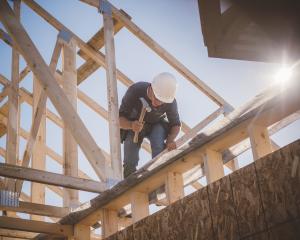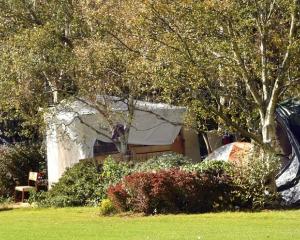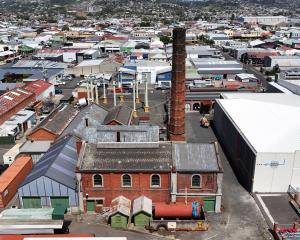Evidence from submissions showed there were considerable parking problems in the area already.
Hope and Sons has applied for consent to install the cremator at its business on the corner of Andersons Bay Rd and Oxford St, near a food outlet, supermarket and homes.
If the cremator is installed, it is expected to halve the number of cremations at the city council's Andersons Bay facility.
Hope and Sons has said there would be no visible emissions apart from heat haze, but residents were not happy with the idea of the facility being so close to their homes.
The company has applied to the Otago Regional Council for a discharge-to-air consent, and to the Dunedin City Council for a consent to establish and operate the cremator.
The hearing, before regional councillors Gretchen Robertson and Louise Croot, and independent commissioner David Benson-Pope for the city council, attracted submissions from 39 people or groups, with 34 of those opposed to the plan.
Hope and Sons counsel Phil Page said the company did not expect any more funerals at the site because of the cremator, but did expect a decrease in traffic, because of fewer casket movements off-site.
Mr Page said the site was in an industrial zone, meaning the company could, if it wanted, bulldoze the funeral home and build, for instance, a cool store.
There were people with spiritual or philosophical concerns, but that did not justify turning down the consent.
"Death is very much a part of life," he said.
Sensitivity to it did not justify turning down the consent.
Funeral director Michael Hope said there had been a decline in the number of deaths in Dunedin, from 1377 in 1962 to 814 last year.
There would be more deaths arising from historic population increases, with numbers in the 65-plus age group expected to increase from 17,000 to 24,000 in the next 15 years, although those in the 40-64 age group would decline.
That meant deaths would again decline by the late 2020s.
About 75% required cremation, or about 412 cremations a year.
Specialist Environmental Services principal air quality scientist John Iseli dealt with the air discharge from the cremator, and concluded the gas-fired cremator the company planned to use would minimise the discharge of contaminants.
"Similar small cremators are operated at numerous sites in rural and urban areas throughout New Zealand without causing smoke or odour issues."
Consultant planner Allan Cubitt took on the issue of public concerns about living next door to a cremator.
He said in the experience of similar operations in other parts of the country, neighbours were not aware when the cremator was operating.
Grey Power Otago president Jo Millar said noise could have a detrimental psychological effect, as people "immediately would know what it is".
She questioned the cost to ratepayers if private cremators took business from the Dunedin City Council's cremators.
Woolworths store manager Ron Andrew said when larger funerals were held, there was "considerable overflow" parking in the Woolworths car park.
It was not uncommon for up to 40 cars coming to the funeral home to park in the Woolworths car park, meaning one-third of available parks were gone for up to two hours.
"Am I really expected to get people's cars towed when they are at a funeral?"Mr Andrew was concerned there would be more funerals, with people staying on the site longer, as cremations were to be carried out.
Later in the day, council planner Darryl Sycamore said the council had been assured the amount of traffic would not change, so the issue was not pursued.
The hearing continues today.












